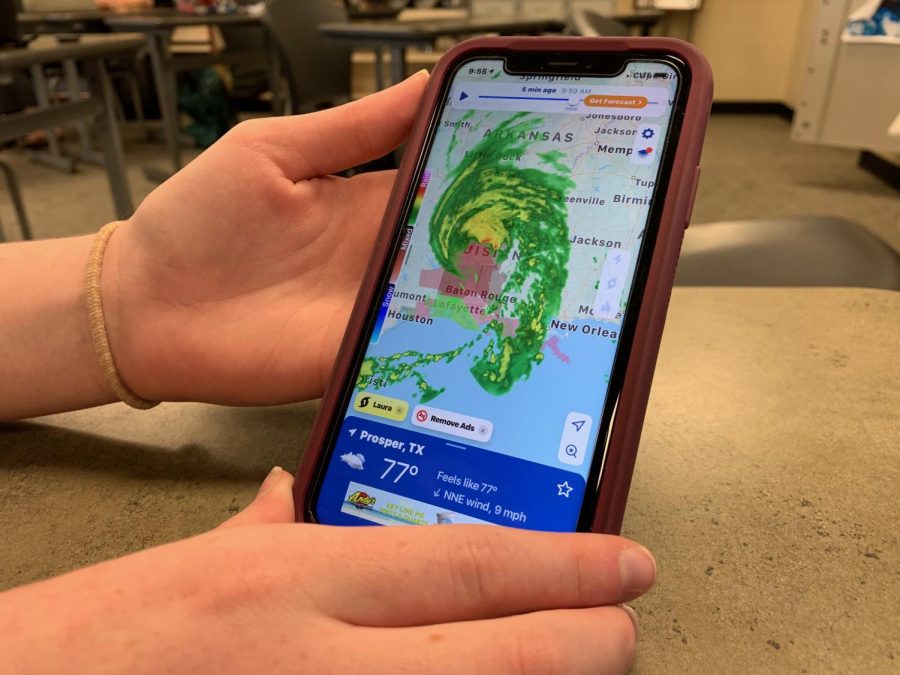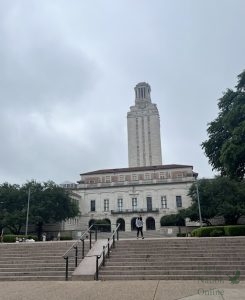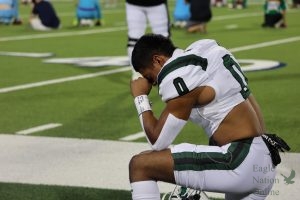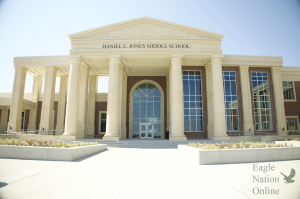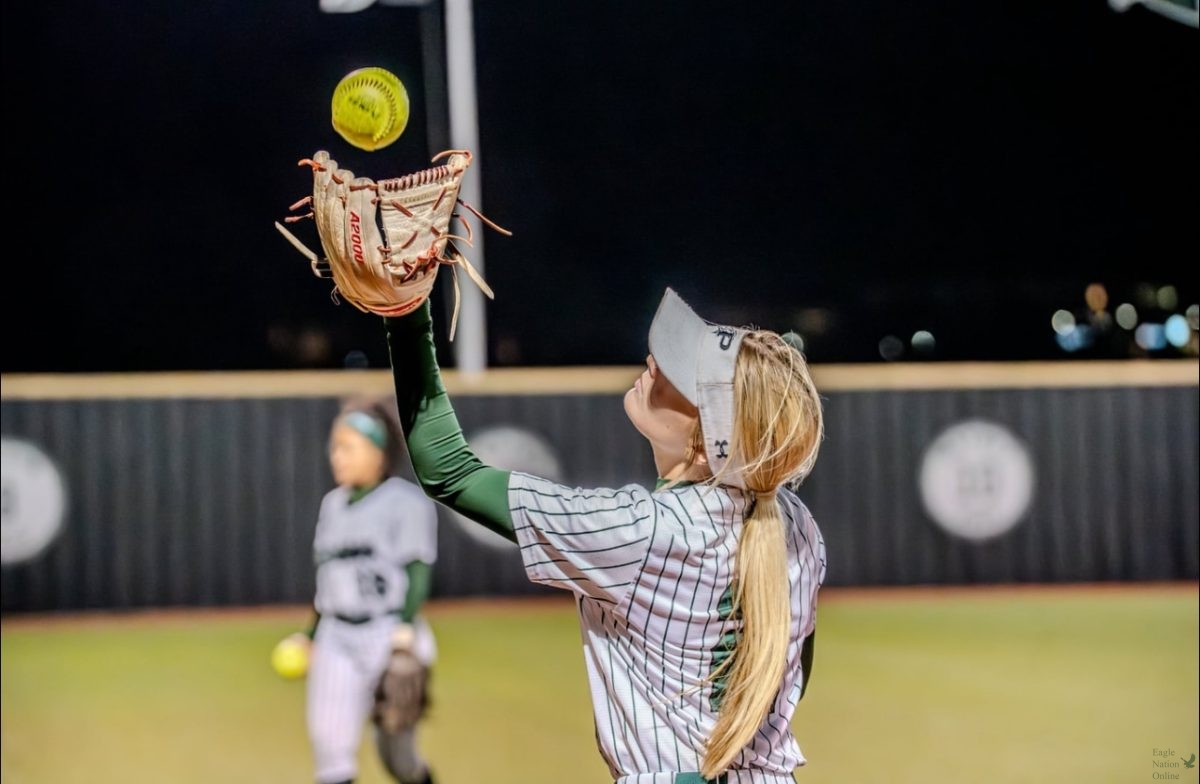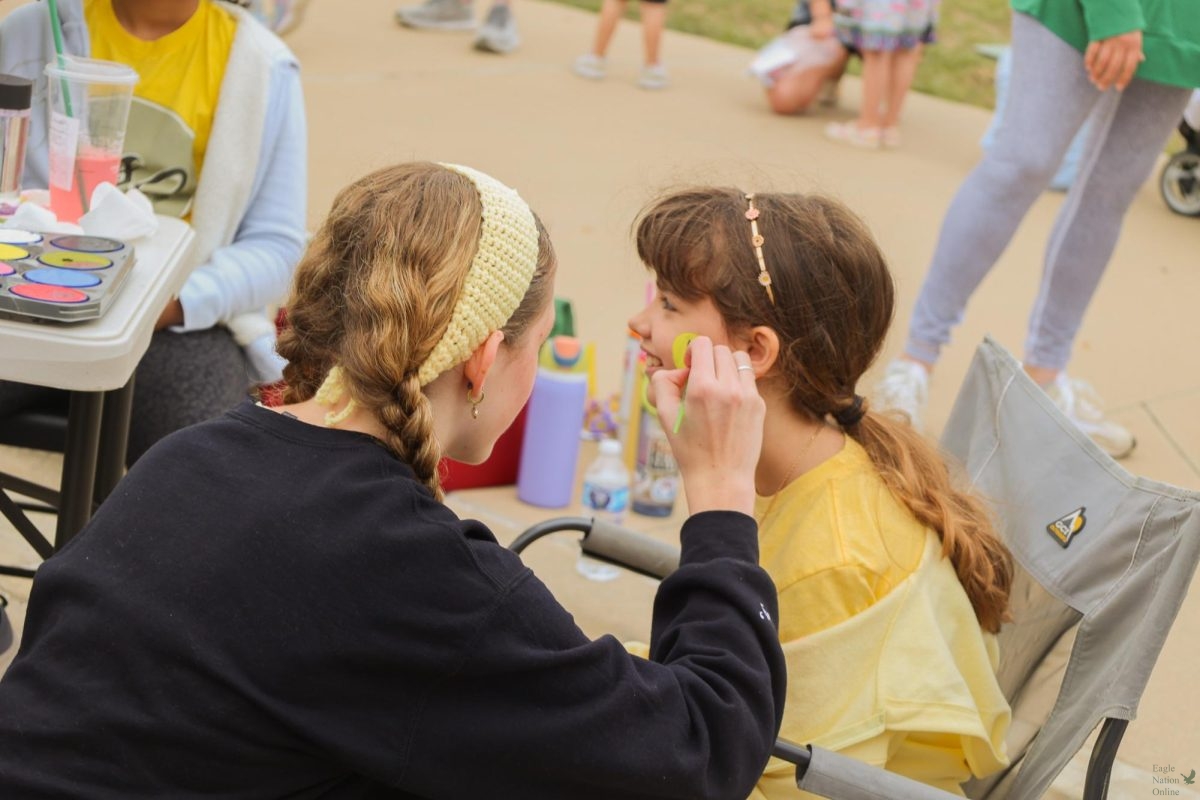Hurricane Laura impacts families, makes landfall as Category 4
As Hurricane Laura strikes southern Louisiana and Texas, a student watches the hurricane’s path. Teachers, students and community members here took action to help loved ones and to protect property. Hurricane Laura was updated Wednesday afternoon to a Category 4 storm. Once making landfall, the storm brought winds of up to 150 mph.
August 28, 2020
When Hurricane Laura reached southern Louisiana, residents in Louisiana and Texas cities had to evacuate their homes, and those evacuations affected more than just locals – even people in Prosper had to take action.
After previously named as a Category 2 storm, officials updated Hurricane Laura’s threat level to a Category 4 on Wednesday afternoon, Aug. 26. As it made landfall, the hurricane brought wind speeds of up to 150 mph, which made it the hardest storm to hit Louisiana in over a century.
Science teacher Monya Offill had to evacuate her mother, who has Alzheimer’s and 24-hour nursing care, from Lake Charles, Louisiana, one location forecasters predicted would take a direct hit.
“They (Lake Charles) had a mandatory evacuation, so the nurses had to leave, and I brought her (Offill’s mother) back to Dallas with me,” Offill said. “I’m having to find someone that can take care of her during the day while I teach for the next few weeks until she can go back home. Her house had a little roof damage but the power will probably be out for several weeks.”
Hurricane Laura hit southern Louisiana early Thursday morning as a Category 4 storm, making landfall at 1 a.m. near Cameron, Louisiana, about 35 miles east of the Texas border. As many southern Louisiana and Texas cities were forced to evacuate due to the storm’s powerful winds and rising storm surge, families have found themselves displaced from their homes.
“We evacuated Monday night, about an hour before they (officials) announced the mandatory evacuation,” Beaumont, Texas resident Russell Helson said. “Here, it recently seems like almost every year, we have been getting major storms and have had to evacuate. I believe the last three years now we have had to evacuate once each year.”
Others noted concern for family and friends in the storm’s path after hearing Hurricane Laura predicted to be one of the most powerful storms to hit the Gulf Coast in decades.
Rock Hill student Bella Wikander not only knew people who had to evacuate the hurricane, but her family also owns a boat in Galveston, Texas. They chose to relocate it to Freeport, Texas, in order to avoid storm damage.
“The boat (after moving it) wasn’t that close to Galveston, nor close to the storm, so it (the hurricane) barely affected us,” Wikander said. “Though, our family friends who live in Galveston evacuated Tuesday night before the storm got bad.”
Areas of southern Louisiana and Texas now stand destroyed, and many homes sit flattened. As of Friday, Aug. 28, Hurricane Laura had caused six deaths and left more than 875,000 people without power. Prosper resident Katie Norris, who grew up in southern Louisiana, said that as a kid, hurricanes to her were not unusual, and the threat of these powerful storms is about “always being prepared and cautious.”
“The threat of hurricanes and tornadoes was a training,” Norris said. “It wasn’t unusual for a hurricane or a tropical storm to hit.”
As the communities assess damage from Hurricane Laura, help from all over the country is already being sent to those affected by the storm. Families in Louisiana have opened up their homes to those whose houses have been decimated. Norris said she has seen kindness such as this herself.
“Learning to deal with extended power outages by grilling food in the freezer and helping your neighbors and others out made growing up in Louisiana a tutorial in resilience and charity,” Norris said. “The people of Louisiana are stronger and kinder because they’ve endured so much from Mother Nature.”




